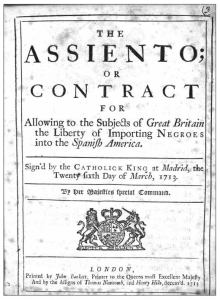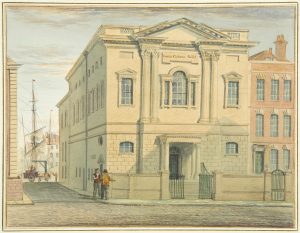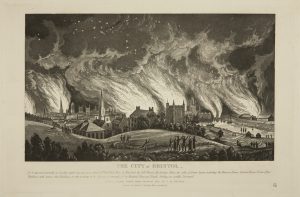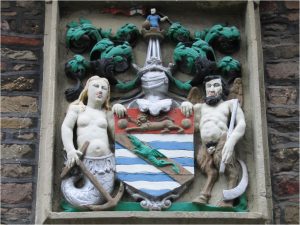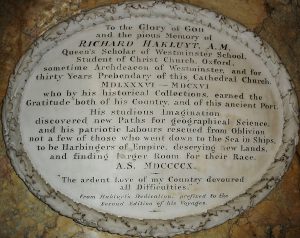M Shed’s Historical Walks: Bristol Abolition
Posted on by Alice Bush.
By walk guide Mark Steeds, author and historian from Bristol Radical History Group
Starting at M Shed, this walk around central Bristol explores the city’s thousand-year involvement in the slave trade, examining what’s been memorialised and what hasn’t…
As well as being proactive in perpetuating the trade, the city has also been a hotbed of abolition, with anti-slavery campaigners from every walk of life. People ranged from Bristol’s ‘mob’ in the 11th century, to religious and radical campaigners in the 17th, 18th and 19th centuries.
After failing to stop the trade in the 17th century (James Naylor, Dorothy Hazard, ‘Blackymore maid’ Francis) we’ll look at some of the great abolitionists that struggled in the 18th century (John Wesley, Hannah More, Ann Yearsley, Thomas Clarkson, Robert Southey, Samuel Taylor Coleridge) who ultimately succeeded in banning the trade outright in 1807.
Hoping emancipation would follow (it didn’t) they persisted. The Bristol Anti-Slavery Society was re-formed in 1823. It was then joined by the Bristol and Clifton Ladies Anti-Slavery Society a few years later. We’ll go past the site of the Assembly Rooms in Prince Street, where in 1830 calls were made for immediate emancipation of 800,000 people throughout the British Empire – as well as compensation for the enslaved! We’ll also discuss how this got switched to compensating the plantation owners.
We’ll then walk to the site of the Merchant Venturers Hall, the very people responsible for Bristol’s involvement in the transatlantic slave trade after 1698. Then, on to Queen Square, the epicentre of the city’s West India merchants. Here we’ll discuss leading characters who engaged in the trade as well as the reform riots of 1831. The riots led to political reform throughout the country in 1832, emancipation in 1833 (although in reality, this didn’t fully occur until 1838) and corporation reform in 1835. Daniel Defoe had talked about the tyranny of the Bristol Corporation way back in 1720…
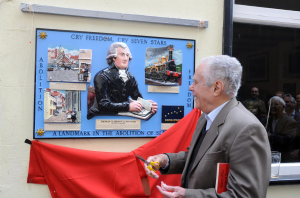
Caribbean historian Richard Hart unveiling the Bristol Radical History Group Clarkson narrative plaque outside the Seven Stars pub in 2009, with his seminal book ‘Slaves Who Abolished Slavery’ under his left arm. © Bristol Radical History Group
Next, we go over the river to the Quaker’s burial ground to discuss campaigning non-conformists in general. We’ll then head to Redcliffe Street and the pub that changed the world, the Seven Stars Inn on St Thomas Lane, after Clarkson’s epic six-month research visit in 1787. Here, we’ll talk about how investigations in Bristol led to a change in British public opinion that saved lives, first sailors and then the enslaved. And how petitioning parliament and twice boycotting sugar over forty years (by the ‘Anti-Saccharites’) put additional pressure on the powers that be to mend their ways.
We’ll then move on to the stunning Exploration sculpture and Bristol Bridge to discuss St Wulfstan’s campaign that led to the Bristol-Dublin slave trade being banned in 1090. This trade re-erupted during the Anarchy and gave an excuse and opportunity for Henry II to invade Ireland in 1171 when it became England’s first de-facto colony. After that, we’ll go to the High Street and the Rummer, the brief home to radical writers. Coleridge’s first publication, The Watchman, was published here. It railed against the slave trade and other hot topics of the turbulent 1790s.
Towards the end of the walk, we’ll visit All Saints Church and Edward Colston’s first statue and tomb, Corn Street and the Exchange, built in 1743 at the height of Bristol’s involvement in the transatlantic slave trade, and Broad Street, home to the pro-slavery lobby as well as Colston’s second statue.
We’ll end up at Bristol city centre and the plinth of Colston’s third statue. There, we’ll consider the culpability of the Anglican Church (from Prebend Hakluyt to Bishop Robinson). We’ll finish with a discussion of the great work of the abolitionist Blackwell, Carpenter and Estlin families who toiled with African-American abolitionists (post British emancipation) to get America’s three-million enslaved free in 1865. This is exemplified by their entries in Mary Carpenter’s Poetical Extracts book that has survived to this day. This priceless artefact can be seen in Bristol Archives.
Click on the images to read the captions.
M Shed’s historical walks are led by volunteer guides with a wealth of knowledge and an infectious passion for their subject. All the walks at M Shed are free, donations are gratefully received, and bookings can be made in advance by calling 0117 352 6600.
Find out when the next Bristol Abolition walk is.
Other blogs in this series:
Old City | Redcliffe | Windmill Hill | Floating Harbour | 1831 Riots | Pirates and Prejudice
